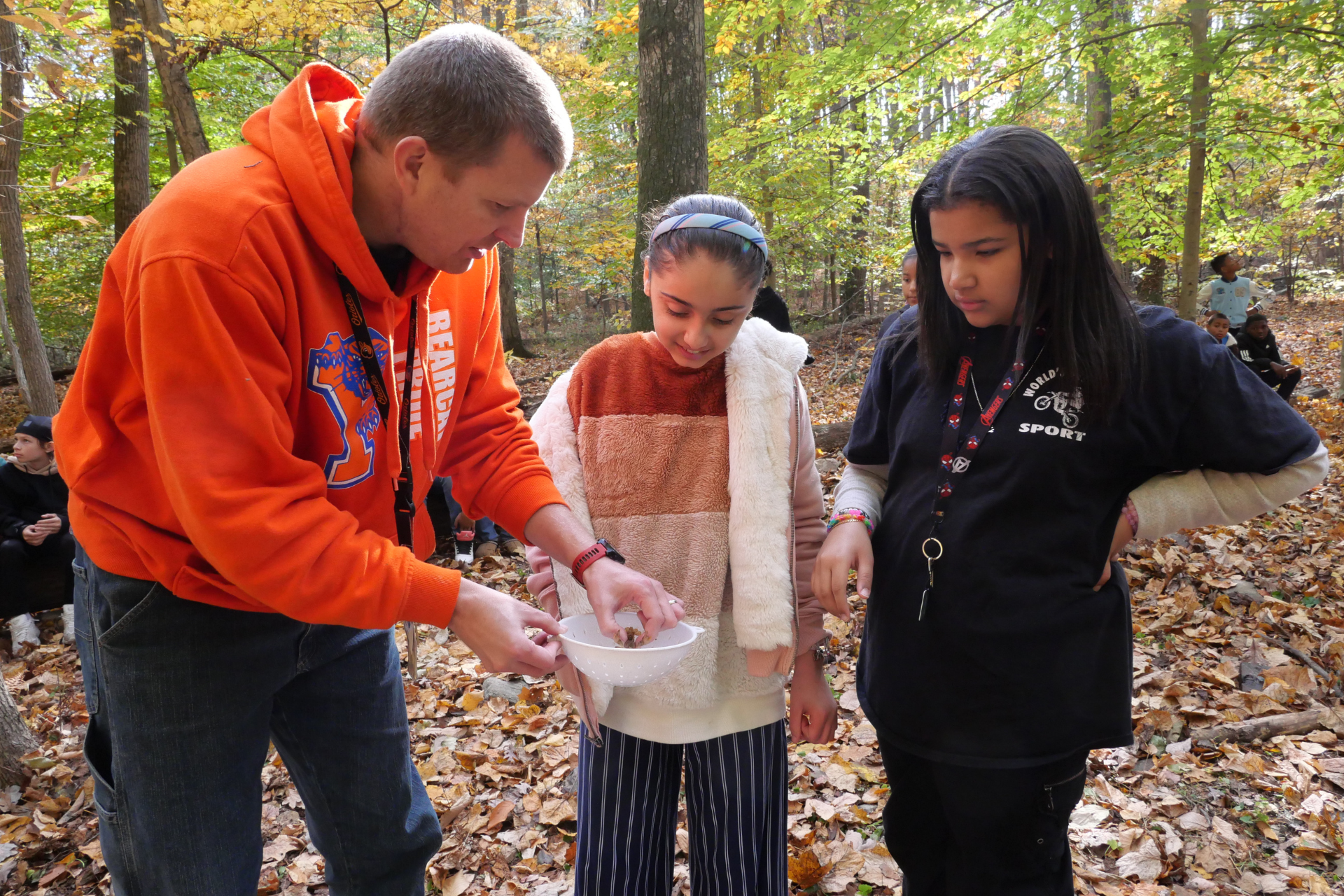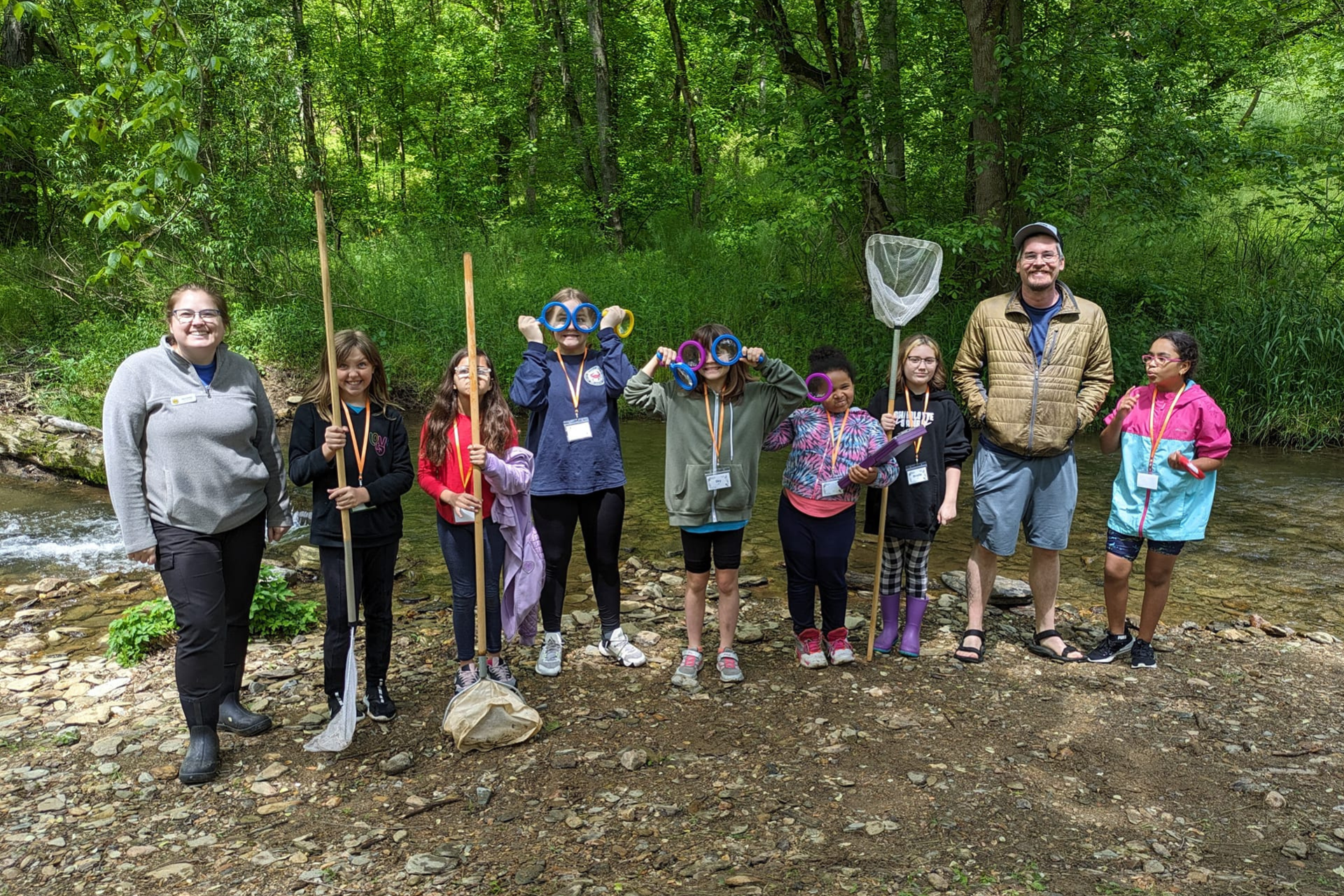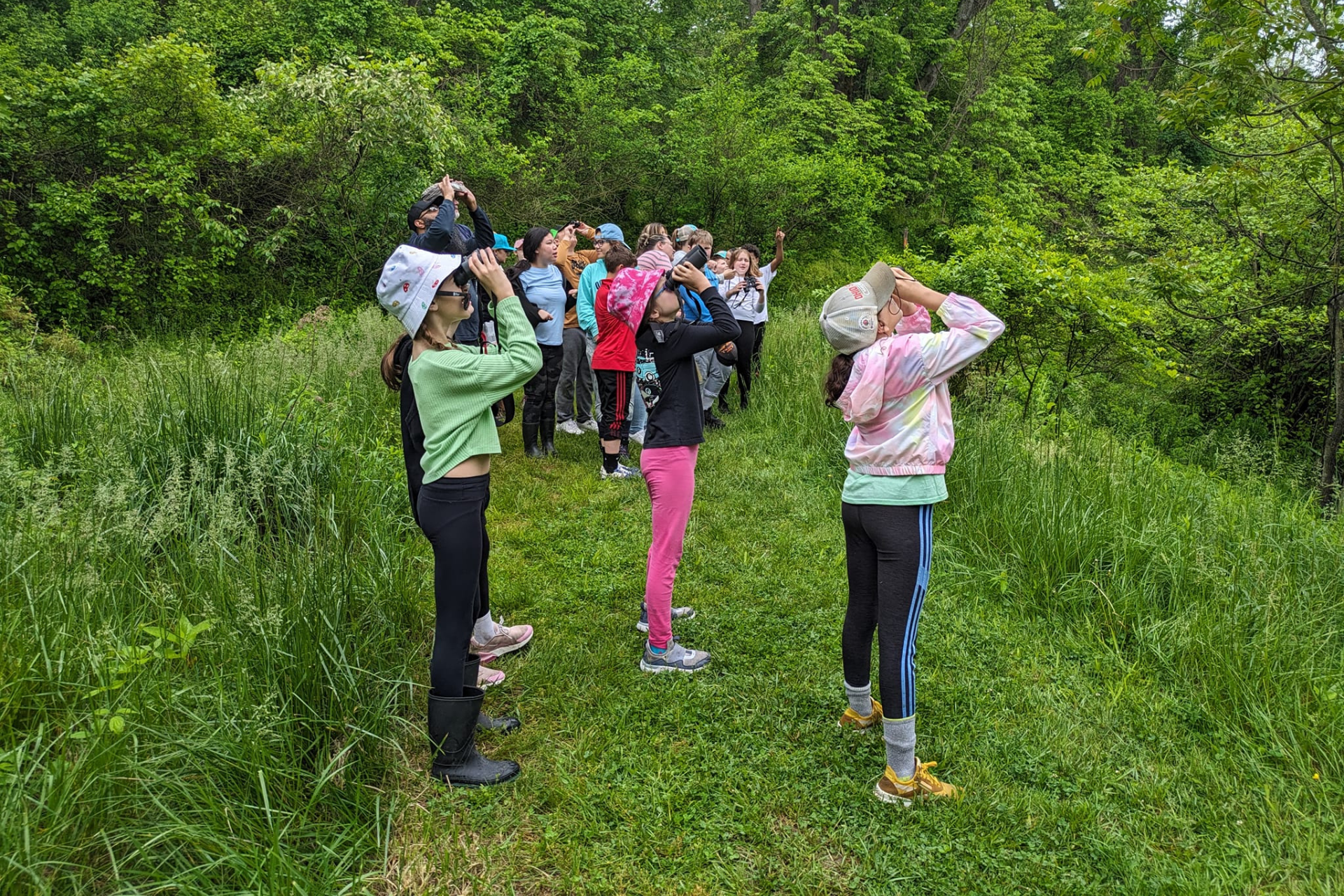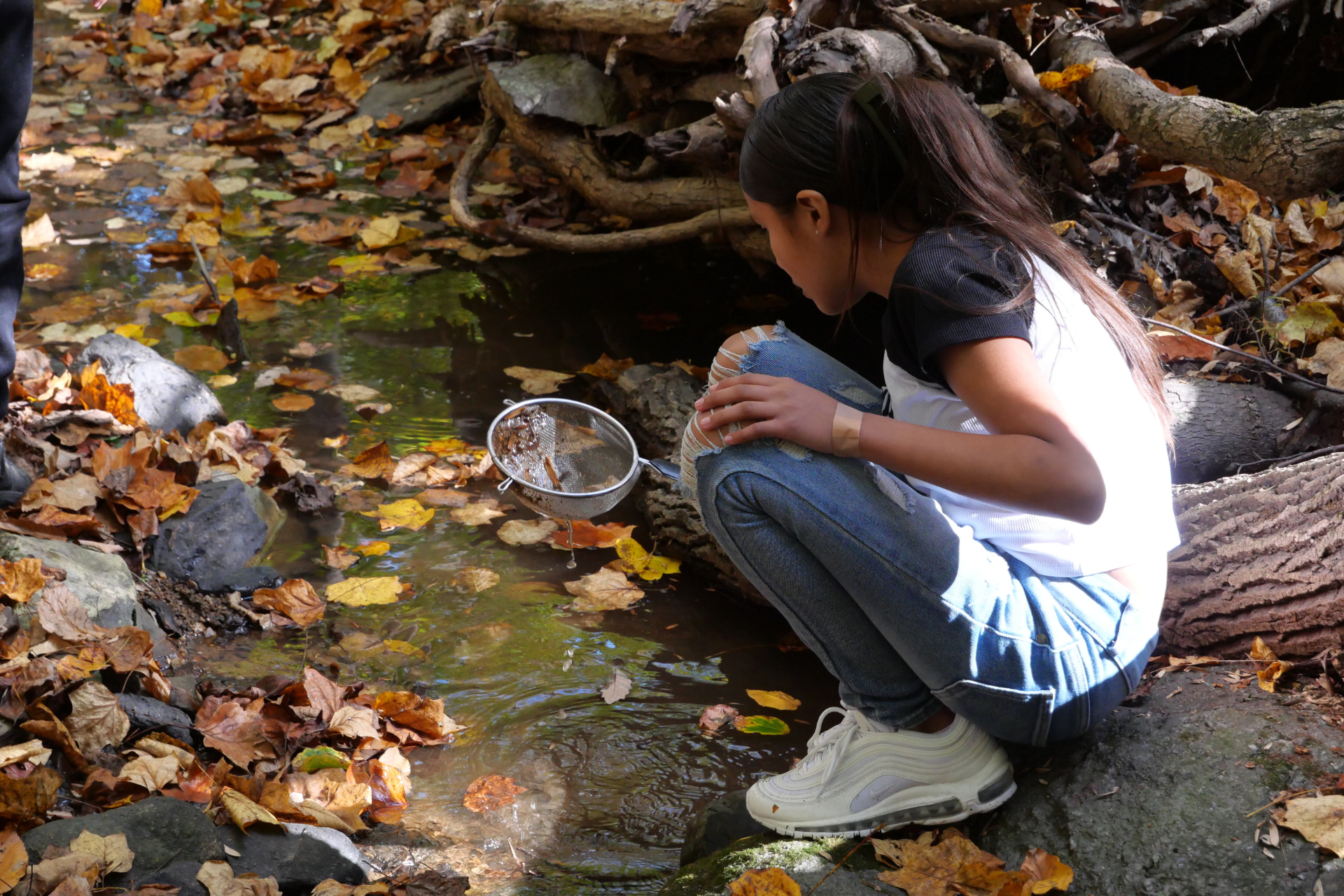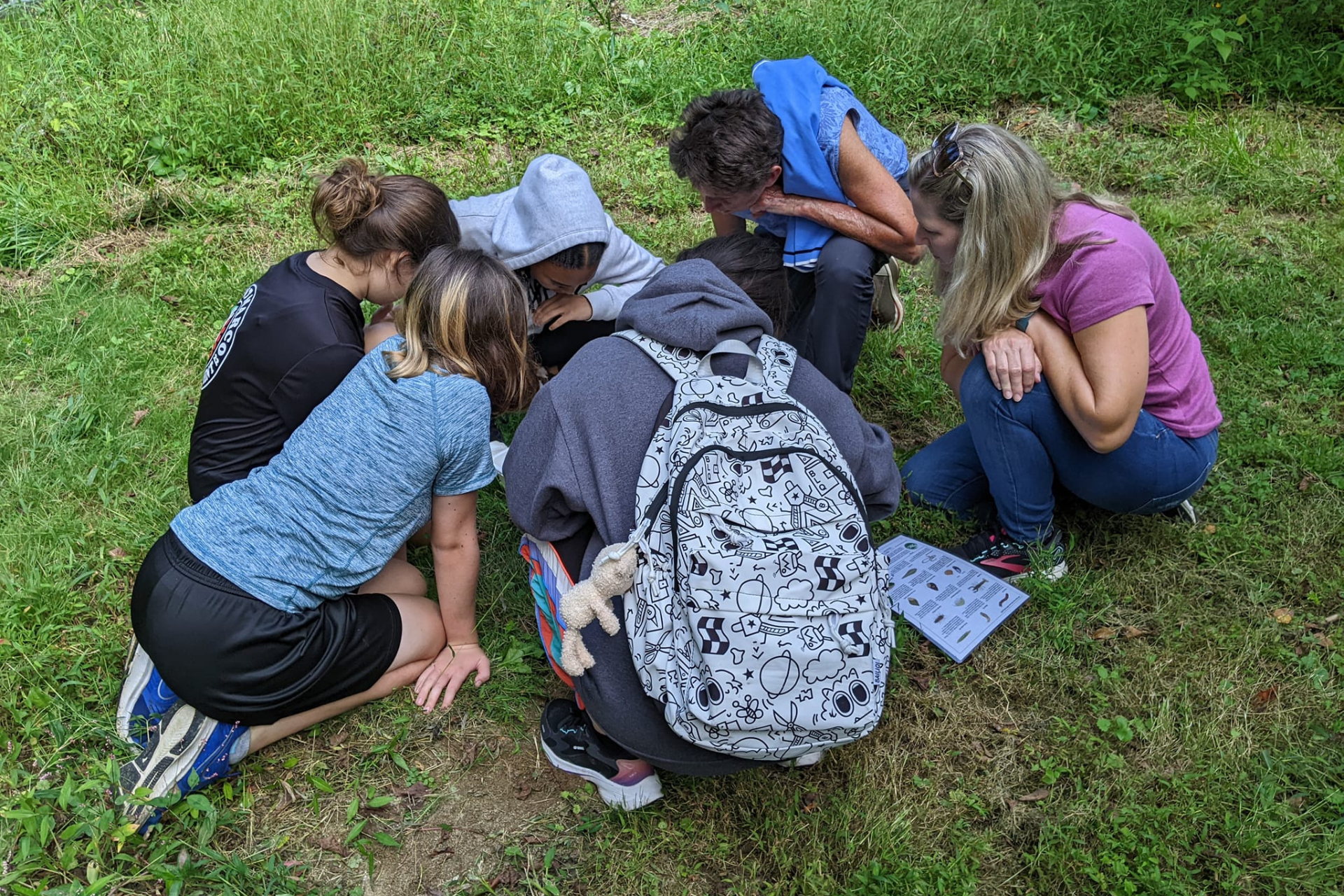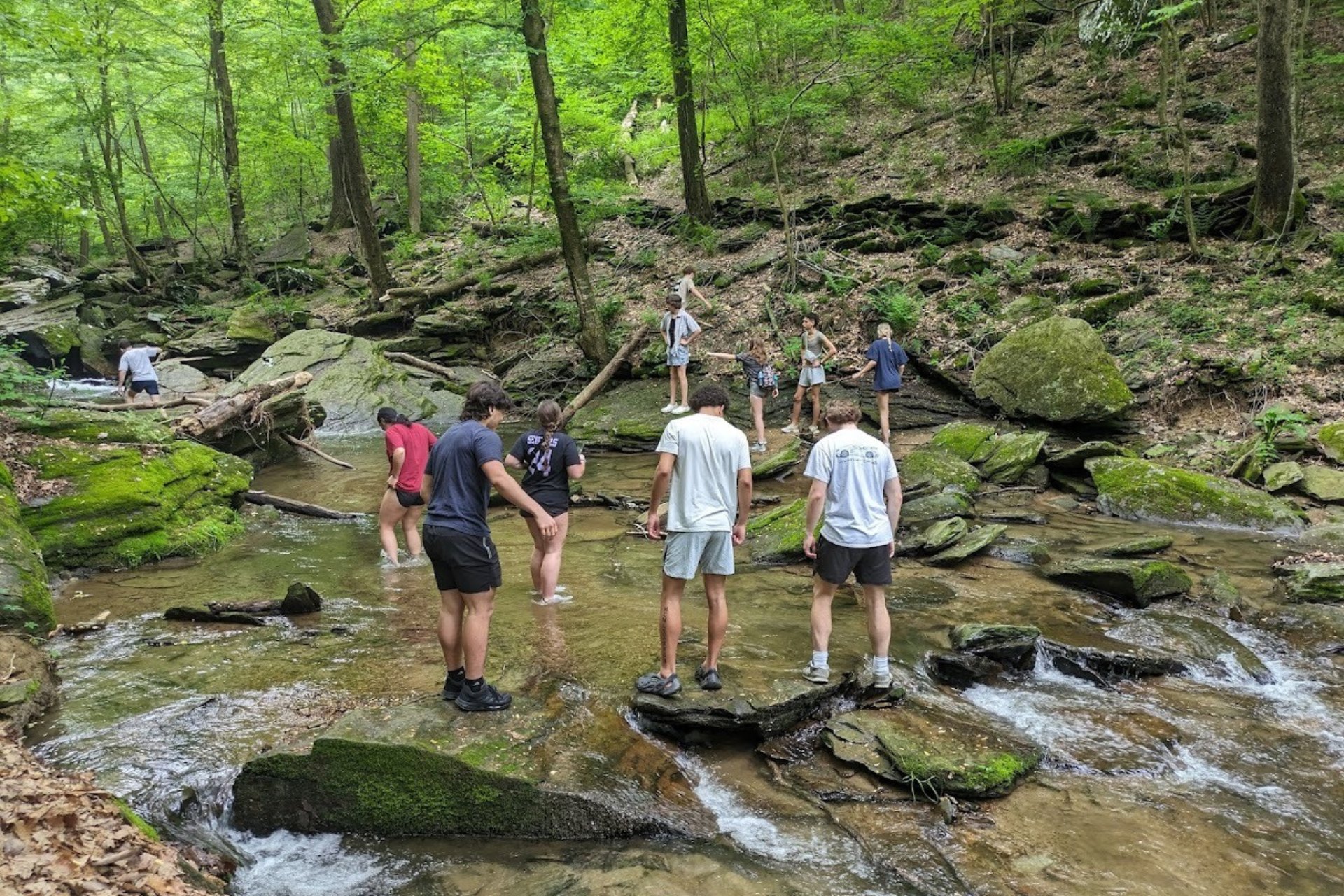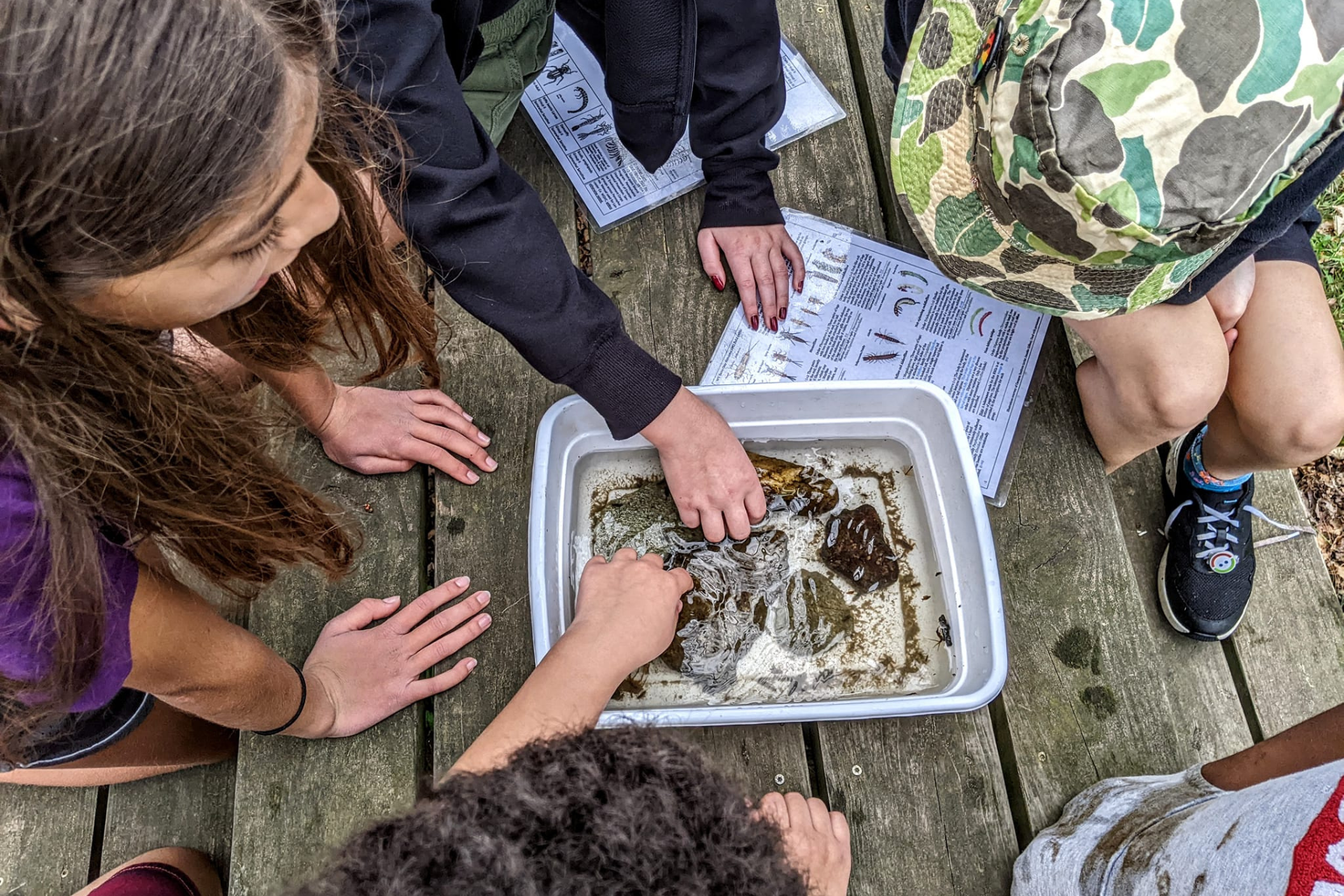Information for Educators
Lancaster Conservancy offers conservation education experiences to K-12 students and their teachers. We work with school groups on several preserves in Lancaster and York counties to explore the science and practices of good land and water stewardship for woodlands, wetlands, streams, and grasslands. Our preserves offer great settings where students can explore the biodiversity of the Susquehanna Riverlands ecoregion with hands-on learning experiences that increase environmental literacy and build connections to our landscape to foster a conservation ethic.
Age-appropriate learning activities include stream studies, grassland surveys, birding, forestry, nature journaling, Leave No Trace, ecological restoration, invasive plant management, and hiking.
In addition, we can modify our student field activities for an enriching teacher professional development session!
Are you an educator or administrator interested in bringing your students out to a Conservancy preserve for programming? Click the button below to fill out the educator interest form!
*Our K-12 school programs are fully booked for spring 2025. We are now taking inquiries for fall 2025.
